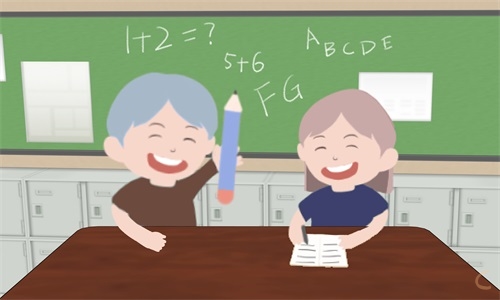初中中考英语知识点
对于更多初中生来说,英语的学习是很吃力的,但是这门课程又必须要掌握好。那么初中阶段需要学习哪些英语知识呢?下面小编为大家带来初中中考英语知识点,希望对您有所帮助!

初中中考英语知识点
基 本 时 态
1. 一般现在时
概念: 表示经常发生的动作或经常存在的状态。
常和 always , often , usually , sometimes , every day 等表时间的状语连用。
如:1) I go to school every day . 我每天都去学校。(表经常)
2) He is always like that . 他总是那样。 (表状态)
构成: 1) 主语 + be (am / are / is ) +……
2) 主语 + 实义动词/三单动词 + …
2.一般过去时
概念: 1) 表示过去某个时间发生的动作或存在的状态.
常和表示过去的时间状语连用. 如: yesterday , last week , in 1998 , two days ago等.
如: I went to a movie yesterday. 我昨天去看了一场电影.
2) 也可表示过去经常或反复发生的动作.
如: He always went to work by bike last week.
构成: 1) 主语 + be (was / were ) +……
2) 主语 + 实义动词过去式 +
3. 现在进行时
概念: 表示现在(说话瞬间)正在进行或发生的动作.
如: He is singing.
They are watching TV now.
构成: 主语 + 助动词be(am/are/is) + 动词-ing形式构成.
4. 过去进行时
概念: 表示过去某一时刻或某一段时间正在进行的动作. 这一特定的过去时间除了有上下文暗示外,一般用时间状语来表示.
如: 1) ---What were you doing?
---I was jumping.
2) ---What was the boy doing when the UFO arrived?
---He was sleeping.
构成: 主语 + 助动词be(was/were) + 动词-ing形式构成.
5. 一般将来时
概念: 表示将来某个时间要发生的`动作或存在的状态,也表示将来经常或反复发生的动作,常与表示将来的时间状语连用,如: tomorrow, next week, next year, in the future等.
如: He will go shopping tomorrow.
They are going to play basketball next week.
构成: 1) 主语 + 助动词will + 动原 +…
2) 主语 + be going to + 动原 + ….
6. 过去将来时
概念: 表示在过去将来的某一时间发生的动作或存在的状态.
构成: 1) 主语(第一人称) + 助动词should + 动原 +…
2) 主语 + would + 动原 + ….
3) 主语 + was/ were going to +动原…
用法: 过去将来时除了上下文暗示外,一般常用在间接引语中,主句谓语动词为过去时态.
如: 1) I should go.
2) You knew I would come.
3) They were going to Naning.
7. 现在完成时
构成: 主语 + 助动词 ( have / has ) + 动词过去分词 +…
用法 例句
表示过去发生或已经完成的动作对现在造成的影响或结果. ---Have you had your lunch yet?
---Yes, I have. (现在我不饿了)
8. 过去完成时
构成: 主语 + 助动词 had + 动词过去分词 +…
用法 例句
表示过去在过去某一时间或动作之前已经发生或完成了的动作.它表示的动作发生的时间是”过去的过去”.表示过去某一时间可用by, before 等构成的短语,也可用when, before, 等引导的从句或者通过上下文表示.
I had finished my homework when my mom came back home.
初中中考英语基础知识点
一、介词by的用法
1、 意为“在……旁”,“靠近”。
Some are singing and dancing under a big tree。 Some are drawing by the lake。
有的在大树下唱歌跳舞。有的在湖边画画儿。
2、意为“不迟于”,“到……时为止”。
Your son will be all right by supper time。
你的儿子在晚饭前会好的。
How many English songs had you learned by the end of last term?
到上个学期末你们已经学了多少首英语歌曲?
3、表示方法、手段,可译作“靠”、“用”、“凭借”、“通过”、“乘坐”等。
The monkey was hanging from the tree by his tail and laughing。
猴子用尾巴吊在树上哈哈大笑。
The boy’s father was so thankful that he taught Edison how to send messages by railway telegraph。
孩子的父亲是那么的感激,于是他教爱迪生怎样通过铁路电报来传达信息。
4、表示“逐个”,“逐批”的意思。
One by one they went past the table in the dark。
他们一个一个得在黑暗中经过这张桌子。
5、表示“根据”,“按照”的意思。
What time is it by your watch?
你的表几点了?
6、和take , hold等动词连用,说明接触身体的某一部分。
I took him by the hand。
我拉住了他的手。
7、用于被动句中,表示行为主体,常译作“被”、“由”等。
English is spoken by many people。
英语被许多人说。(即“许多人讲英语。”)
初中中考英语知识点归纳
1、 时间状语从句
(1)时间状语从句常用when, as, while, before, after, since, till, until, as soon as等连词来引导。例如:
It was raining hard when got to school yesterday.
While he was doing his homework, the telephone rang.
As he walked along the lake, he sang happily.
He had learned a little Chinese before he came to China.
After he finished middle school, he went to work in a factory.
(2)在时间状语从句里,通常不用将来时态,用现在时态表示将来的动作或状态。例如:
I’ll ring you up as soon as I get to New York.
I will tell him everything when he comes back.
He won’t believe it until he sees it with his own eyes.
(3)在带有till或until引导的时间状语从句的主从复合句里,如果主句用肯定式,其含义是“一直到……时”,谓语动词只能用延续性动词。如果主句用否定式,其含义是“直到……才……”, “在……以前不……”, 谓语动词可用瞬间动词。例如:
The young man read till the light went out.
Let’s wait until the rain stops.
We won’t start until Bob comes.
Don’t get off until the bus stops.
2 、条件状语从句
(1)条件状语从句通常由if, unless引导。例如:
What shall we do if it snows tomorrow?
Don’t leave the building unless I tell you to.
(2)在条件状语从句里,谓语动词通常用现在时态表示将来的动作或状态。例如:
I’ll help you with your English if am free tomorrow.
He won’t be late unless he is ill.
(3)“祈使句 + and (or)+ 陈述句” 在意思上相当于一个带有条件状语从句的复合句。例如:
Hurry up, or you’ll be late.
=If you don’t hurry up, you’ll be late.
Study hard and you will pass the exam.
=If you study hard, you will pass the exam.
初中中考英语知识点梳理
一、come 短语
1. come across (偶然)遇见(或发现)
2. come along (意外地)出现;发生;来到
3. come from 来自
4. come into 进入
5. come in 进来
6. come out 出版;发表
7. come on 快点儿
8. come over 顺便来访
9. come true (希望等)实现
10. come up with 提出;想出(主意、回答等)
二、get 短语
1. get away 逃离;走开
2. get back 返回;回来;回家
3. get close(to) 接近
4. get down 降下
5. get down to 开始认真(做某事)
6. get in 进入;收获;达到
7. get off 下车
8. get on 上车
9. get through 通过;拨通(电话)
10. get gogether 聚会;联欢
11. get up 起床
三、give 短语
1. give up 放弃
2. give in 屈服;让步
3. give away 赠送;分发
4. give out 分发;发放
5. give back 还给;归还;恢复(健康等)
6. give birth to 生;产生
7. give…a lift 捎(某人)一程
初中中考英语知识点总结
一、 动词不定式不带to的动词
五看(notice,observe,see,look at,watch),
三使役(have,let,make),
二听(hear,listen to),
一感觉(feel)。
按:在上述动词后做宾语补语用的不定式不带to。
二、非谓语动词
动词不做谓语用,
不定、分词与动名。
to 加原形不定式,
词组可做名、副、形。
分词现在和过去,
相当副词和形容。
原形加上“ing”,
动词具有名词性。
三、基数词变序数词(之一)
基变序,有规律,
词尾字母 tdd 。①
八减 t,九减 e,
f 要把 ve 替。②
ty 把 y 变成 i ,
记住th前有个e。③
① 指first、second、third。
② 指eight去掉t,nine去掉e,five和twelve去掉ve加上f。
③ 指twenty→twentieth等。
四、基数词变序数词(之二)
第一、二、三要全变,①
其余“th”加后边,②
“th”里有例外,
你需格外记明白:
八减 t,九减 e,③
字母 f 代ve,④
ty 变 tie。⑤
① one-first,two-second,three-third。
② four-fourth,seven-seventh,hundred-hundredth。。
③ eight-eighth ,nine-ninth。
④ five-fifth,twelve-twelfth。
⑤ twenty-twentieth,sixty-sixtieth。
